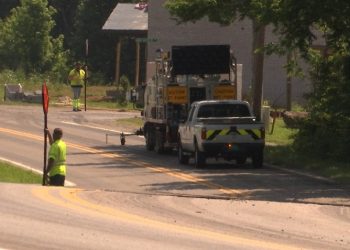NEWPORT, Tenn. — Since 1988, Cocke County has participated in the National Flood Insurance Program (NFIP), which impacts both federal disaster relief funds and flood insurance rates for local residents. Following the devastation caused by Hurricane Helene, many homeowners in the county faced a new set of challenges when they were informed that any home rebuilding efforts would need to comply with the NFIP’s specific flood protection guidelines.
The program mandates that homes rebuilt in flood-prone areas be elevated above certain flood levels to minimize risk in future disasters. However, some residents had already begun their rebuilding projects before being notified of these new requirements. As a result, many were forced to halt work and reconsider their plans, adding a layer of frustration and uncertainty to an already difficult situation.
This issue sparked heated discussions during a December meeting of Cocke County leadership. The county now faces a difficult decision: continue participating in the NFIP, or opt out and face significant consequences, including much higher flood insurance rates and the loss of federal disaster relief funds. Opting out would also allow homeowners to rebuild without needing to comply with NFIP elevation guidelines, but at the risk of higher long-term costs and reduced financial assistance in future disasters.
During a meeting on Thursday night, Cocke County officials agreed to postpone any final decision on whether to stay in the NFIP until next month. Despite the uncertainty, Mayor Rob Mathis expressed confidence that the county would likely remain in the program.
“It seems to me like that is what the will is of both the people who spoke tonight and the board,” Mayor Mathis said. “So, I think that’s what it’s going to be.”
Mathis also acknowledged the financial strain the county is under as it works to rebuild after the hurricane. The county is facing a shortage of resources and struggling to hire additional staff to assess the damage and repair critical infrastructure, including the county jail.
“It’s less of a preparedness issue and more of a capacity issue,” Mathis explained. “We don’t have the resources. And what resources we do have get overwhelmed very quickly when something like this comes along. So we’re doing all we can to expand that capacity, and everyone is beyond pushed to the limit right now.”
While the debate continues, county leaders have vowed to assist homeowners who incurred additional costs to bring their homes into compliance with the NFIP’s elevation requirements. To date, only one home has been issued a stop-work order for not meeting the program’s guidelines.
As the decision-making process unfolds, the residents of Cocke County remain in a state of uncertainty, with their futures tied to both federal guidelines and the county’s ability to balance the needs of homeowners with the resources available to rebuild. The issue will be revisited at next month’s meeting, where the county’s leadership will continue to discuss whether staying in the NFIP is the best option for the community moving forward.













